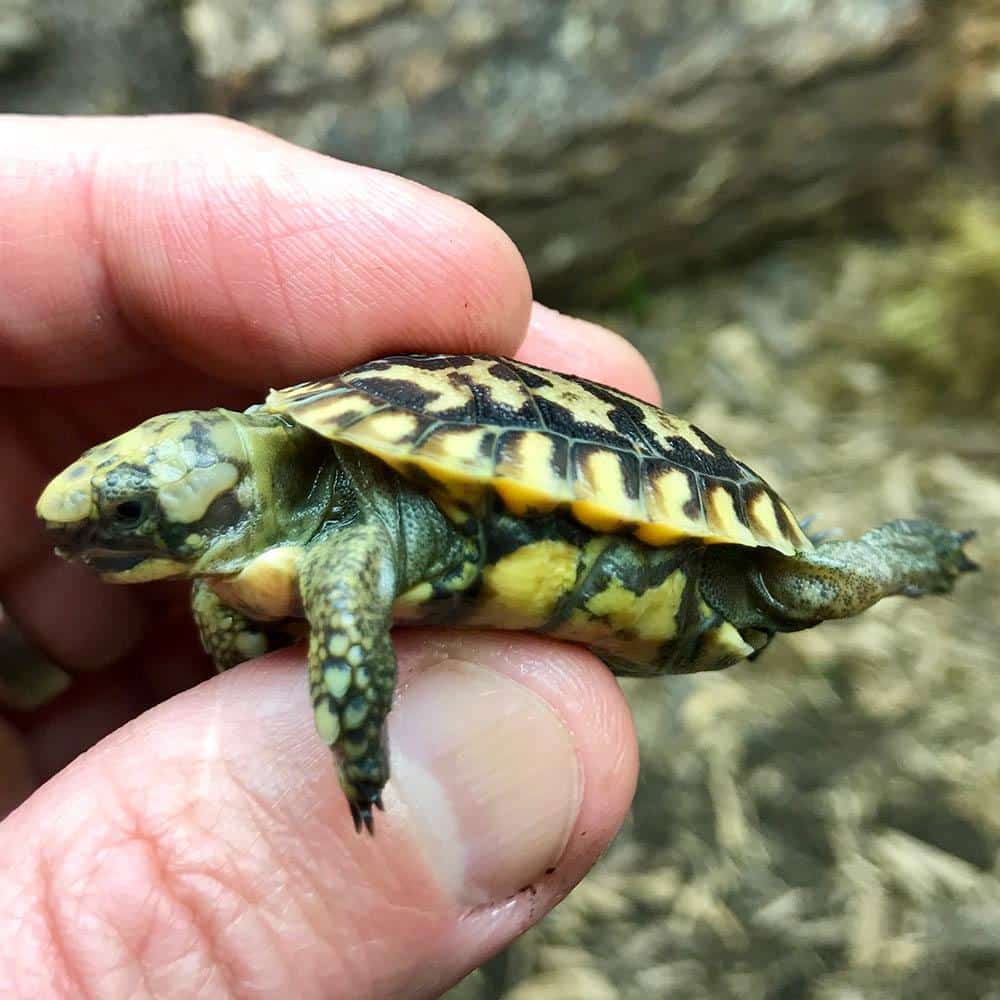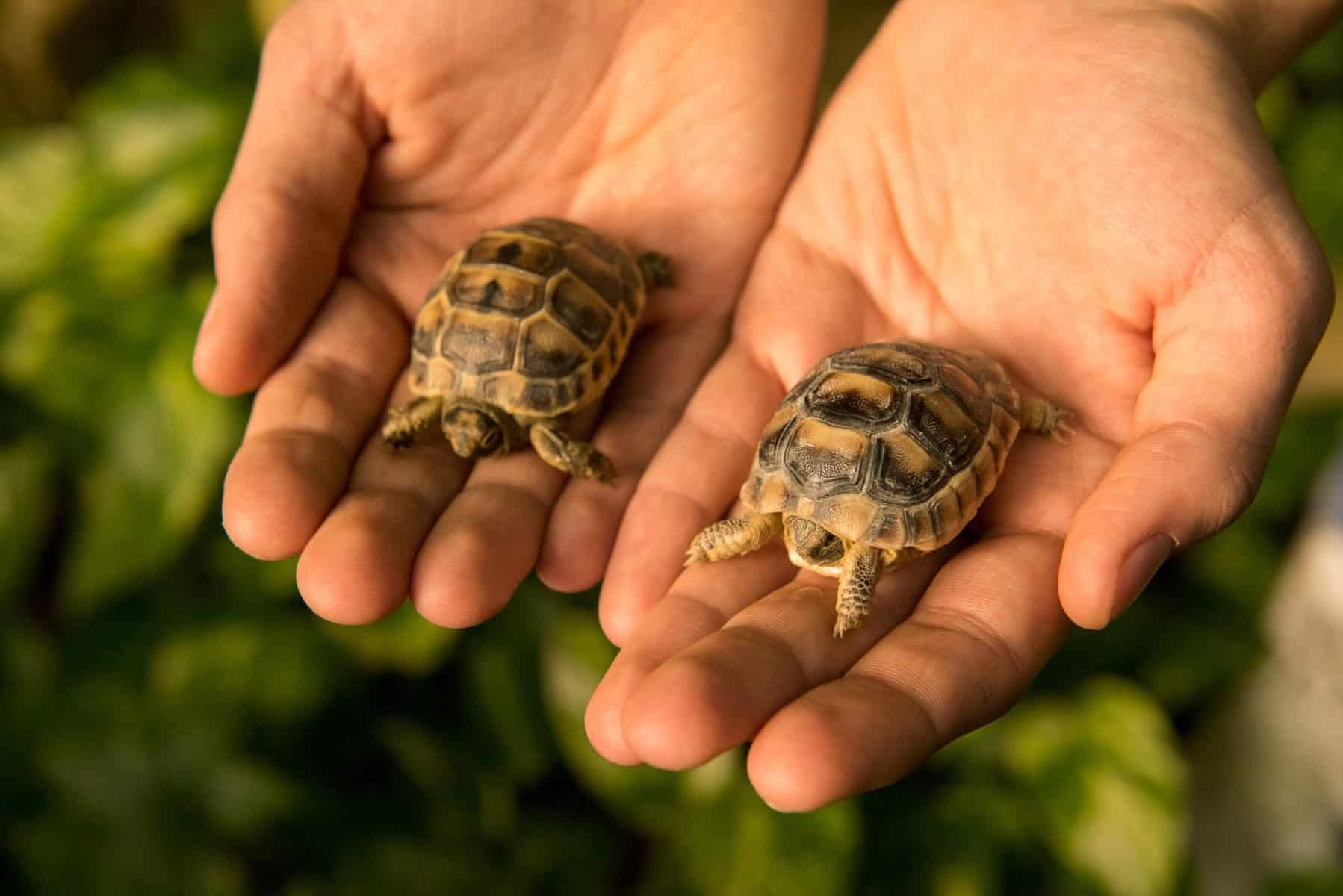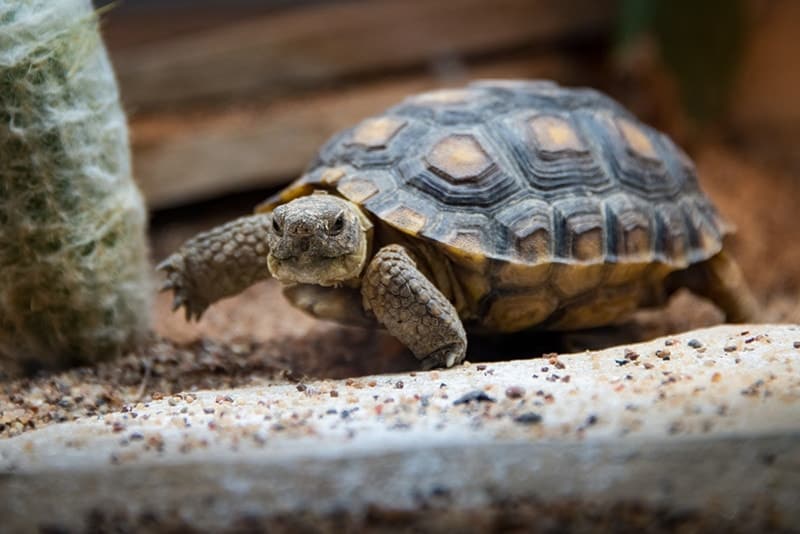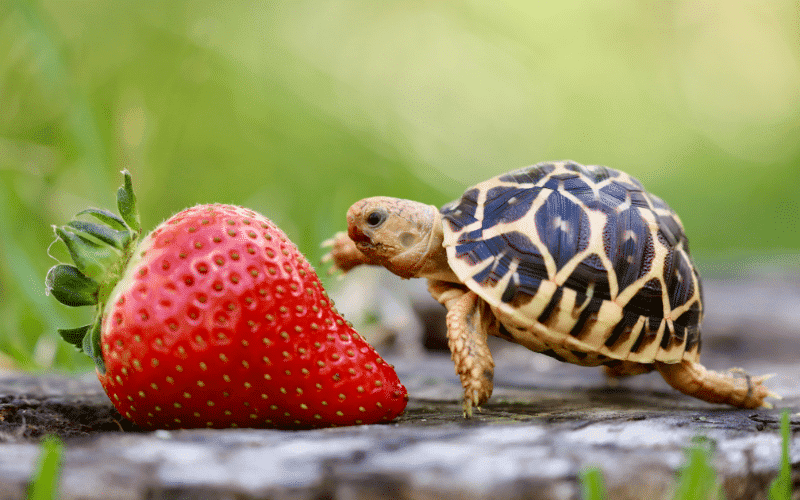Tortoises that stay small include species such as the Greek tortoise, Russian tortoise, and Indian star tortoise.
Why Small Tortoises Make Great Pets for Any Home
Small tortoises have become increasingly popular as pets in recent years. These adorable creatures are known for their unique appearance and low maintenance requirements, making them an ideal choice for busy pet owners.
In this article, we will explore the various reasons why small tortoises are gaining popularity as pets and discuss the different aspects of their care and maintenance.
Low Maintenance: Why Small Tortoises are Ideal for Busy Owners
One of the main reasons why small tortoises are becoming popular as pets is their low maintenance requirements. Unlike other pets that may require daily grooming or frequent feeding, small tortoises only need minimal grooming and can be fed infrequently.
Their slow metabolism allows them to go for long periods without food, making them perfect for busy owners who may not have the time to feed their pets multiple times a day.
In terms of grooming, small tortoises do not require regular baths or brushing like dogs or cats. They are naturally clean animals and can keep themselves tidy by simply walking around their enclosure. However, it is important to provide them with a clean and suitable living environment to prevent any health issues.
A List of Tortoises That Stay Small
Here is a brief list of tortoise species that are commonly kept as pets and tend to stay small in size:
- Greek Tortoise (Testudo graeca):
- Known for their manageable size, Greek tortoises typically grow to around 6 to 8 inches (15 to 20 centimeters).
- They are hardy and adaptable, making them popular pets for beginners.
- Greek tortoises require a suitable habitat with access to basking spots, hiding areas, and a varied diet of vegetables and occasional fruits.
- Hermann’s Tortoise (Testudo hermanni):
- Similar in size to Greek tortoises, Hermann’s tortoises typically reach lengths of 6 to 8 inches (15 to 20 centimeters).
- They are native to southern Europe and thrive in warm, dry climates.
- Hermann’s tortoises require a balanced diet of leafy greens, weeds, and occasional fruits.
- Russian Tortoise (Agrionemys horsfieldii):
- Russian tortoises are small and compact, usually reaching lengths of 5 to 8 inches (13 to 20 centimeters).
- They are extremely hardy and can adapt to a variety of environmental conditions.
- Russian tortoises have a herbivorous diet consisting of weeds, grasses, and leafy greens.
- Marginated Tortoise (Testudo marginata):
- Marginated tortoises are slightly larger but still considered small in comparison to many other tortoise species, typically growing to 8 to 10 inches (20 to 25 centimeters).
- They are native to southern Europe and require a warm, outdoor habitat with access to sunlight.
- Marginated tortoises enjoy grazing on a variety of grasses, weeds, and leafy greens.
- Indian Star Tortoise (Geochelone elegans):
- Indian star tortoises are known for their striking shell patterns and small size, typically growing to 6 to 8 inches (15 to 20 centimeters).
- They require warm, humid environments and access to UVB light for proper shell development.
- Indian star tortoises primarily feed on a diet of dark, leafy greens, grasses, and occasional fruits.
- Egyptian Tortoise (Testudo kleinmanni):
- Egyptian tortoises are one of the smallest tortoise species, reaching lengths of 5 to 6 inches (13 to 15 centimeters).
- They are critically endangered in the wild and are challenging to find in the pet trade.
- Egyptian tortoises require a warm, dry habitat and a diet consisting of a variety of plants, including leafy greens and weeds.
These tortoise species generally remain small in size compared to other larger tortoise species, making them suitable options for keepers with limited space or those seeking a manageable pet reptile.
Space Requirements: How Small Tortoises Can Thrive in Compact Dwellings
Another advantage of small tortoises as pets is that they can thrive in compact dwellings. Unlike larger tortoise species that require spacious outdoor enclosures, small tortoises can be comfortably housed in smaller indoor enclosures. A 20-gallon tank or terrarium is usually sufficient for a small tortoise, although larger enclosures are always better if space allows.
When creating a living space for your small tortoise, it is important to provide them with a suitable substrate such as coconut coir or cypress mulch. This will mimic their natural habitat and allow them to burrow and dig. Additionally, it is important to provide them with a heat source, such as a heat lamp or under-tank heater, to maintain the proper temperature gradient in their enclosure.
Feeding Habits: Understanding the Nutritional Needs of Small Tortoises
Feeding small tortoises is relatively easy, as they have simple dietary requirements. They are primarily herbivores and their diet should consist mainly of leafy greens, vegetables, and some fruits. It is important to provide a varied diet to ensure they receive all the necessary nutrients.
Small tortoises should be fed every other day, as their slow metabolism allows them to go for extended periods without food. It is important not to overfeed them, as this can lead to obesity and other health issues. Additionally, it is crucial to provide them with a calcium supplement, such as cuttlebone or calcium powder, to ensure proper shell growth.
Longevity: The Lifespan of Small Tortoises and How to Care for Them
Small tortoises have a relatively long lifespan compared to other pets. On average, they can live for 20-30 years or even longer with proper care. To ensure a healthy and long life for your small tortoise, it is important to provide them with a suitable living environment, a balanced diet, and regular veterinary check-ups.
Maintaining the proper temperature and humidity levels in their enclosure is crucial for their overall health and well-being. It is also important to monitor their weight and ensure they are not becoming overweight or underweight. Regular visits to a reptile veterinarian can help identify any potential health issues early on and provide appropriate treatment.
Bonding with Your Pet: Building a Strong Relationship with a Small Tortoise
Building a strong bond with your small tortoise requires patience and consistency. These creatures are naturally shy and may take some time to adjust to their new environment and owner. It is important to handle them gently and avoid sudden movements or loud noises that may startle them.
To interact with your small tortoise, you can offer them food from your hand or simply sit near their enclosure and observe them. Spending time near them regularly will help them become familiar with your presence and build trust. It is important to remember that small tortoises are not as social as dogs or cats, but they can still form a bond with their owners over time.
Health Considerations: Common Health Issues and How to Prevent Them
Like any pet, small tortoises are susceptible to certain health issues. Some common health problems in small tortoises include respiratory infections, shell rot, and nutritional deficiencies. These issues can often be prevented by providing a clean and suitable living environment, a balanced diet, and regular veterinary check-ups.
Respiratory infections can occur if the temperature and humidity levels in the enclosure are not properly maintained. It is important to provide a warm and humid environment for your small tortoise, especially during the colder months. Shell rot can occur if the enclosure is not kept clean and dry. Regular cleaning of the enclosure and monitoring of the tortoise’s shell will help prevent this condition.
Personality Traits: Unique Characteristics of Small Tortoises as Pets
Small tortoises have their own unique personality traits that set them apart from other pets. They are generally calm and docile creatures that enjoy basking in the sun and exploring their surroundings. They are not as social or interactive as dogs or cats, but they can still provide companionship and entertainment.
Small tortoises have a slow and deliberate nature, which can be quite relaxing to observe. They are not demanding pets and do not require constant attention or entertainment. This makes them perfect for individuals who prefer a more low-key pet that does not require constant interaction.
Cost of Ownership: Budgeting for a Small Tortoise as a Pet
The cost of owning a small tortoise can vary depending on the species and where you purchase it from. The initial costs typically include the purchase of the tortoise itself, the enclosure, heating and lighting equipment, and any necessary supplies such as substrate and food dishes.
Ongoing costs include the cost of food, which can vary depending on the type and quality of food you choose to feed your tortoise. Additionally, regular veterinary check-ups and any necessary medications or treatments should be factored into the budget. It is important to consider these costs before deciding to bring a small tortoise into your home.
Legal Considerations: Are Small Tortoises Legal to Keep as Pets?
Before bringing a small tortoise into your home, it is important to research the laws and regulations surrounding their ownership in your area. In some places, certain species of small tortoises may be protected or require special permits to keep as pets. It is crucial to ensure that you are following the law and obtaining any necessary permits or licenses before acquiring a small tortoise.
Additionally, it is important to consider the ethical implications of keeping a small tortoise as a pet. Some species may be endangered or threatened in the wild, and their capture for the pet trade can contribute to their decline. It is important to only acquire small tortoises from reputable breeders or rescue organizations that prioritize the welfare and conservation of these animals.
The Benefits of Owning a Small Tortoise as a Pet
In conclusion, small tortoises make wonderful pets for a variety of reasons. Their low maintenance requirements, ability to thrive in compact dwellings, and unique personality traits make them an appealing choice for many pet owners.
With proper care and attention, small tortoises can live long and healthy lives, providing companionship and enjoyment for their owners.
However, it is important to consider the legal and ethical implications of owning a small tortoise and ensure that you are providing them with a suitable living environment and proper care.
Originally posted 2024-01-12 10:05:56.





